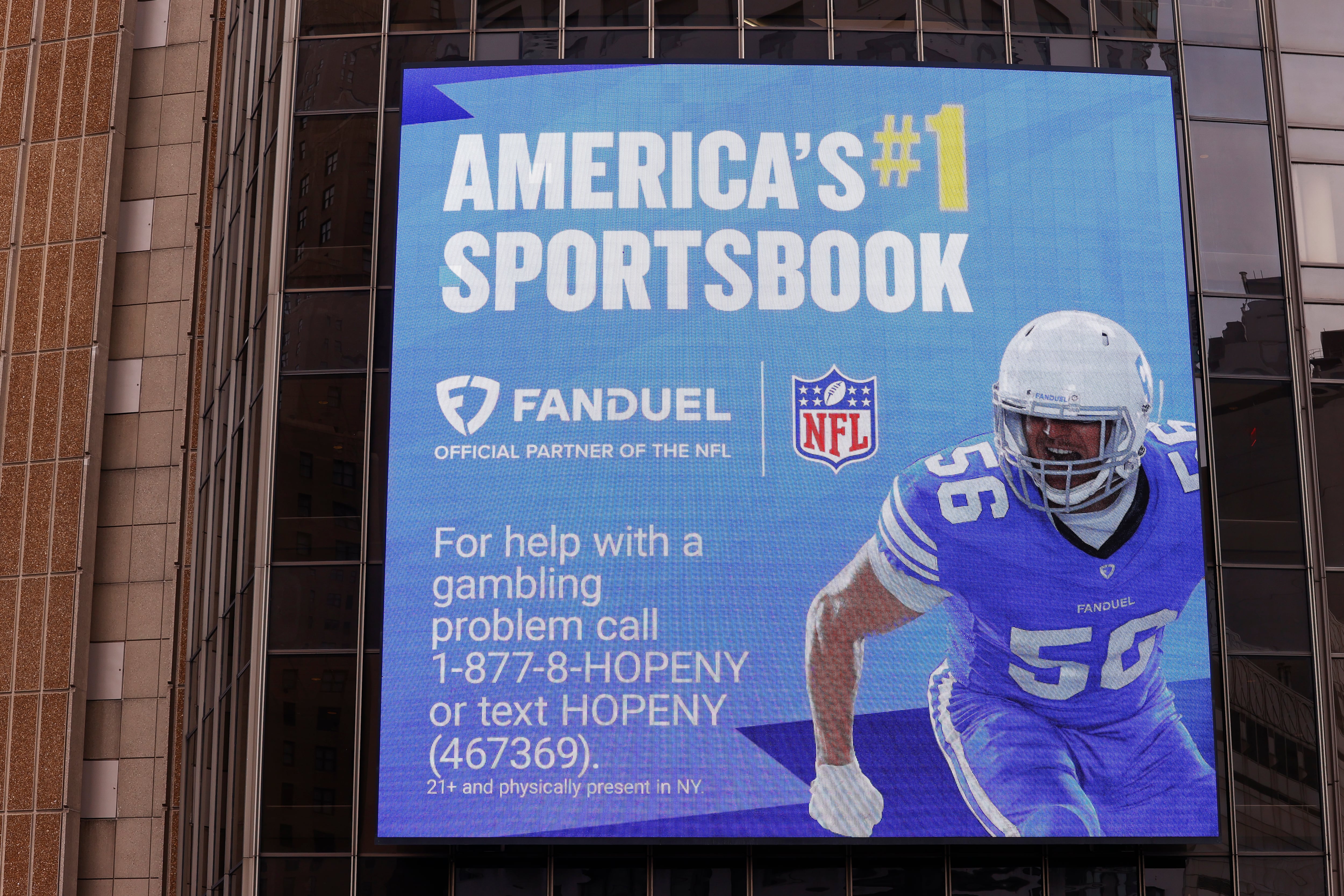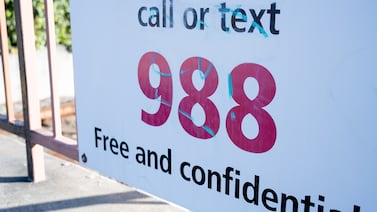Public health, explained: Sign up to receive Healthbeat’s free national newsletter here.
The popularity of online gambling, especially among young men, has addiction researchers worried in New York, where mobile sports betting has surpassed casino gambling as the primary reason for calls to the state’s helpline.
A bill to legalize full-functional casino apps, or iGaming, did not pass this year’s legislative session, but experts warn that youth problem gambling is a mental and public health crisis that warrants attention before it gets worse.
“The largest single-year increases for all presented service and treatment utilization data were observed between 2021-22, following the implementation of legalized mobile sports betting in January 2022,” according to the state’s Office of Addiction Services and Supports, which offers services and treatment for gambling harms and gambling disorder.
Twenty-two percent of Americans, and 48% of men ages 18 to 49, have a mobile sports betting account, according to the Siena College Research Institute.
“They’re being groomed for the day they are able to really gamble legally,” said Jim Maney, executive director at the New York Council on Problem Gambling.
The bill to legalize iGaming, sponsored by state Sen. Joseph P. Addabbo Jr., a Queens Democrat, will likely be back next year. New York already has more forms of legal gambling than any other state, from horse racing to casinos.
As states move to legalize online betting, problem gambling has become a growing national trend. Eighty percent of Americans gamble on a yearly basis, and three to five of every 10 struggle with problem gambling – 1% of the U.S. population, or about 5 million people, according to the National Council on Problem Gambling.
Eighty-one percent of problem gamblers play online, according to the gambling addiction organization QuitGamble. These apps include slot machines, which have a rate of addiction of over 50%.
By comparison, the United States’ alcohol use disorder rate is 10.2% among people 12 and older.
How young people’s brains are primed for online betting
Young adults are an ideal market for online gambling, said Stephen Shapiro, director of the University of South Carolina’s master’s program in sports and entertainment management who has studied sports betting. They are comfortable using apps and taking risks and may have less financial literacy around the impact of losing money and going into debt.
Advertising for apps like DraftKings and FanDuel is aggressive. Flashy ads pop up during televised games’ commercial breaks, sponsor shoutouts on podcasts, and on subways, and taxis.
The micro-betting, or play-by-play betting, offered on sports betting apps also fits nicely into the short attention spans brought on by social media apps, Shapiro said.
“It’s almost like it was perfect timing for that type of betting to occur. People are probably less likely to tune in and watch one game in its entirety anyway, even if they’re not gambling,” he said.
Young people are particularly vulnerable to developing addictive behaviors because the prefrontal cortex, the part of the brain responsible for rational decision-making, isn’t fully developed until a person is around 26 years old, according to the National Institute of Mental Health. Before it has fully developed, a person is easily influenced by outside stimuli.
Think of the young brain as a sponge, soaking up everything it comes across and unable to say no to things that more mature adults would know to be careful of, said Dr. Christopher Tuell, clinical director of addiction services at the Lindner Center of HOPE in Mason, Ohio.
Dopamine, which Tuell calls the “feel good” chemical, is released when a person engages in addictive behavior.
“It was originally designed to help us survive… If food wasn’t pleasurable, we would have died out thousands of years ago. If sex wasn’t pleasurable, we wouldn’t be here as a species,” he said.
When an addictive behavior releases dopamine, it tricks the brain into believing that the behavior is essential for survival, Tuell said. This mental misunderstanding leads to cravings, making the addiction hard to let go of, because your brain is scared of what will happen to you if you stop.
“The brain thinks that dopamine is essential because it’s related to survival. But what happens in addiction is that our logical, rational brain goes offline. That’s why people [may] engage in behaviors that are self-destructive,” he said.
New York using tax revenue to mitigate problem gambling
New York Gov. Kathy Hochul, who earlier this year declared March as Problem Gambling Awareness Month, has promised that a large chunk of the tax revenue from gambling will be used on education and treatment to help with problem gambling and the risks of addiction.
Of the nearly $30 billion the state has raked in from tax revenue on sports betting apps, $6 million has been allotted for “problem gambling education and treatment purposes,” according to the New York State Gaming Commission.
The state recently expanded reimbursement for gambling disorder treatment under Medicaid, according to the OASAS. Previously, it was covered only in conjunction with a substance abuse disorder.
The NYCPG is advocating for a new formula, Maney said: “For every dollar spent on gambling advertisements, a dollar has to be spent on counter advertisements to raise the awareness of problem gambling.”
“There is not enough treatment and prevention. There’s not enough education, there’s [basically] not any research yet,” he said.
If you or someone you know is struggling with problem gambling, call 1-877-8-HOPENY (467369) or reach out to the Problem Gambling Resource Center.
This story was produced in partnership with the Health & Science Reporting Program at the Craig Newmark Graduate School of Journalism at CUNY. Willa Odefey is a student who specializes in addiction and public health coverage and is the author of the newsletter Been an OK Boy on Substack.






